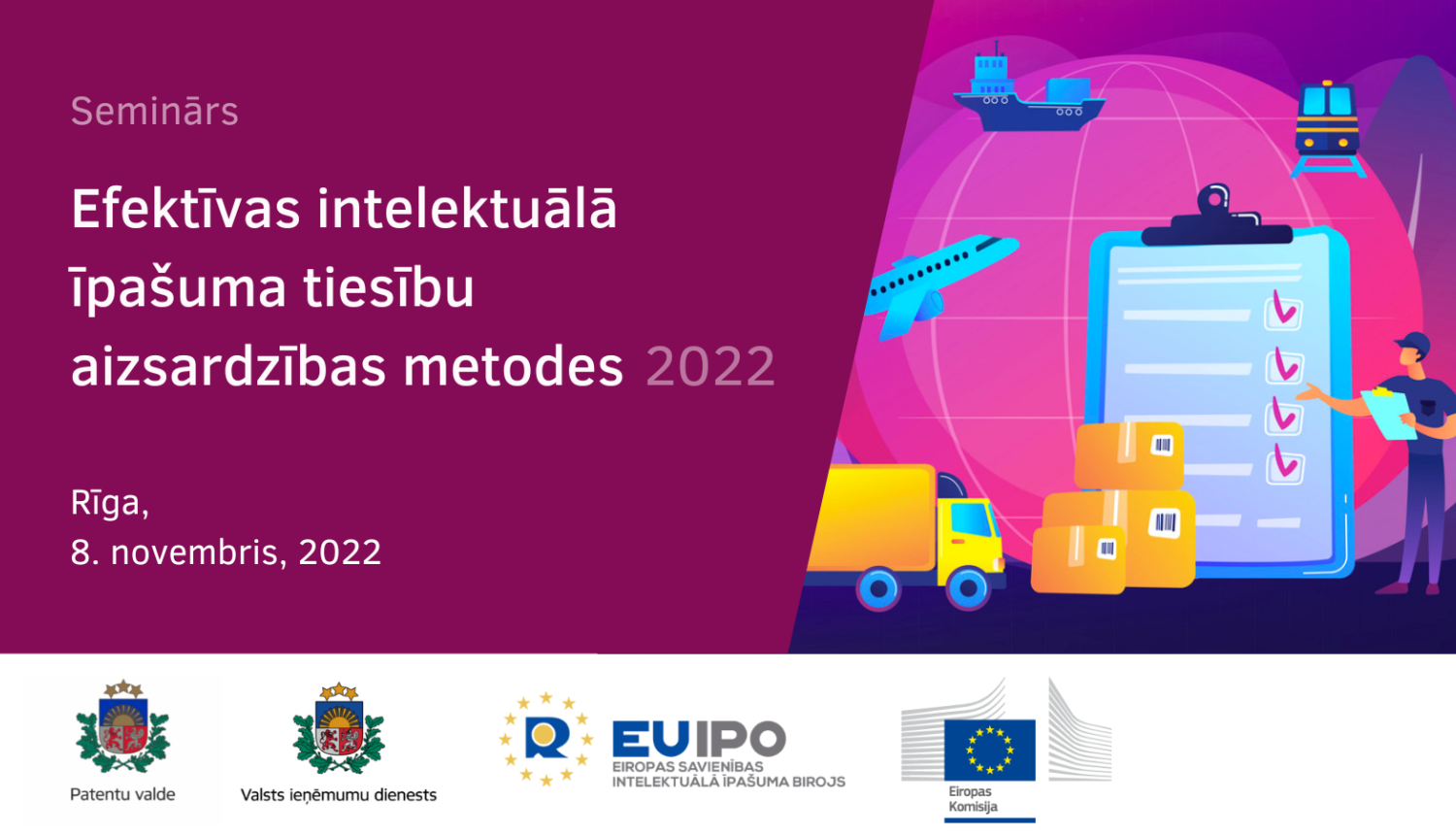On 8 November 2022, an international seminar for prosecutors, customs and police officers on Effective Methods of IPR Enforcement took place for the sixth time already.
This annual training provides the opportunity for employees of Latvian law enforcement institutions to share experiences, get acquainted with best European practices of combatting counterfeiting, and improve their knowledge of current methods of preventing infringement of intellectual property rights (IPR).
From the presentations of the State Police, the Health Inspectorate, the European Union Intellectual Property Office (EUIPO), Europol and the European Anti-Fraud Office (OLAF), the seminar participants learned about the current trends in counterfeiting and best practice examples of seizures of large consignments of counterfeits, including medicines. The seminar also covered such topics as activities of the customs authorities of Latvia, Estonia, and Lithuania in preventing IPR violations; signs that help identify counterfeits and pirated goods; recent developments in regulatory enactments.
The EUIPO study presented in the spring of 2022 on people's attitude towards counterfeits confirms that the more educated the society, the higher the threshold of intolerance towards goods and services of illegal origin. According to the study, counterfeits currently account for 6,8 % of the European Union's total imports - that's 121 billion euros - and they affect absolutely all sectors, from cosmetics and children's toys, wine and beverages, and electronics to clothing and pesticides. Counterfeiting also has a negative impact on businesses, especially small and medium-sized enterprises, which are the backbone of the European economy. Analyzing the situation in Latvia, the losses caused by IPR infringement are estimated at approximately 45 million euros.
Raimonds Zukuls, Deputy Director General for Customs Issues and Director of the National Customs Board of the State Revenue Service, stressed: "In order to fight against the spread of counterfeit goods, the Customs has been delegated the right to control international shipments and cargo, thus protecting consumers and manufacturers of original goods. Every year, Latvian customs authorities detain thousands of fake toys, medicines, car spare parts, shoes, clothes, perfumery and cosmetic products, and other goods. More than 474,000 counterfeits were seized in the previous five years.
Controlling millions of shipments of imported goods, customs officials need extensive knowledge to distinguish original products from counterfeits, and it must be constantly updated as trends change. International exchange of experience on current methods significantly contributes to the implementation of IPR enforcement measures."
The seminar was organized by the Patent Office in cooperation with the Customs Board of the State Revenue Service and with the support of the European Union Intellectual Property Office and the "Customs 2027" program of the European Commission.



